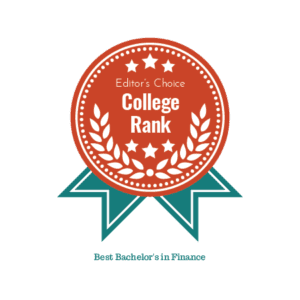MASTER OF EDUCATION IN EARLY CHILDHOOD EDUCATION
Purpose
The Master of Early Childhood Education program prepares professionals who are reflective about their practice and who critically analyze what constitutes effective teaching and valuable learning. They expand their instructional repertoires and master an expanding body of pedagogical knowledge while becoming deeply cognizant of the ethical and societal dimensions of early childhood education. The program emphasizes instruction, curriculum development, and assessment within an interdisciplinary approach.
Specialty Accreditation
NSU’s educator preparation programs at the baccalaureate and master’s levels are accredited by the Council for the Accreditation of Educator Preparation (CAEP), www.caepnet.org, (1140 19th Street NW, Suite 400, Washington, D.C. 20036-1023, 202-223-0077), and/or the Oklahoma Office of Educational Quality and Accountability (840 Research Parkway, Suite 455, Oklahoma City, OK 73104, 405-522-5399), www.ok.gov/oeqa
Credential Requirements
Courses included in the Master of Education in Early Childhood do not represent all courses needed for an Early Childhood teaching certificate for the State of Oklahoma. Candidates seeking certification should contact NSU’s Teacher Certification office for individual advisement on courses needed based on previous college credits.
Student Learning Outcomes
- Identify children’s characteristics and needs.
- Identify multiple interacting influences on children’s development and learning.
- Use content knowledge to design and implement meaningful and challenging curriculum that promotes development and learning for each child.
- Use content knowledge to design and implement meaningful and challenging curriculum that promotes development and learning for each child.
- Use developmentally appropriate assessment strategies in ways that promote positive outcomes for each child.
- Conduct themselves as members of the early childhood profession.
- Use ethical guidelines and other professional standards related to early childhood practice.
- Implement strategies that foster dispositions leading to life-long learning.
Early Childhood, M.Ed. - 33 hours
Specialized Early Childhood - 21 hours
- ECED 5213 - Infant and Toddlers
- ECED 5413 - Advanced Development of the Young Child
- ECED 5513 - Advanced Organization & Implementation, Early Childhood Programs
- ECED 5563 - Fostering Belonging in Early Childhood Education
- ECED 5583 - Current Trends and Research in Early Childhood
- ECED 5613 - Administration and Supervision of Early Childhood Programs
- ECED 5713 - Advanced Study, Cognitive Development of Young Children
Enrichment - 3 hours
Select from the following courses:
- ECED 5113 - Creative Expression for Early Childhood
- ECED 5313 - Development of Early Childhood Programs
- ECED 5763 - Classroom Management for Early Childhood
- READ 5113 - Emergent & Early Literacy Development
- READ 5323 - Literacy Assessment
- SPED 5203 - Evidence-Based Strategies & Curriculum Design for Students with ASD
- SPED 5303 - Positive Behavioral Supports for Students with ASD
Capstone - 3 hours
Requires completion of 24 hours prior to enrollment.
Program Notes
Unless they have been previously taken in an undergraduate format, the following 4000-level courses may be included on the degree plan (with additional requirements for graduate-level work) with the approval of the faculty mentor and Graduate College.
Teacher Education Admission and Certification Policies
In addition to courses in the discipline, all students completing a baccalaureate degree that leads to teacher certification must meet the following requirements for certification.
- Be accepted for admission to teacher education, pre-II internship, and full internship according to published course sequence and guidelines.
- Demonstrate proficiency at the high novice level in a language other than English.
- Complete all courses in the major and Professional Education Core with a grade of “C” or higher.
- Students entering NSU beginning Fall 2013 must have an overall GPA of 2.75 for admission to teacher education.
- Once admitted to the teacher education program, all majors must continue to maintain a GPA of 2.5 (overall and in their major field of study) through completion.
- 4 X 12 requirement - Early Childhood, Elementary Education, and Special Education programs require completion of 12 semester hours with a grade of “C” or better in the following disciplines: Communication Arts (English, Communication, Literature), Math, Science, and Social Science (Economics, Geography, History, Political Science, Psychology, Sociology) prior to graduation.
- All Professional Education majors must complete PSYC 1003 or PSYC 1113. Advisors recommend those courses be completed as part of the General Education course sequence.
Degree Available At
- Tahlequah
Starting Your NSU Journey?
Make your transition to NSU as smooth and seamless as possible.
Visit our Graduate College Checklist for more information.
Career Services
What Can I Do With A Master's Degree in Early Childhood Education?
Program Chair:

Program Requirements
- 3.0 GPA
Application Deadline
- Open Year Round
*Fees include: facility fee, student activity fee, infrastructure fee, cultural/scholastic lecturer fee, student ID fee, technology services fee and remedial course fee, if applicable. NSU courses taught at off campus locations or online might have additional fees assessed. These totals are tuition and fee estimations per program based on the current catalog year. Books, supplies and some fees may not be included.


